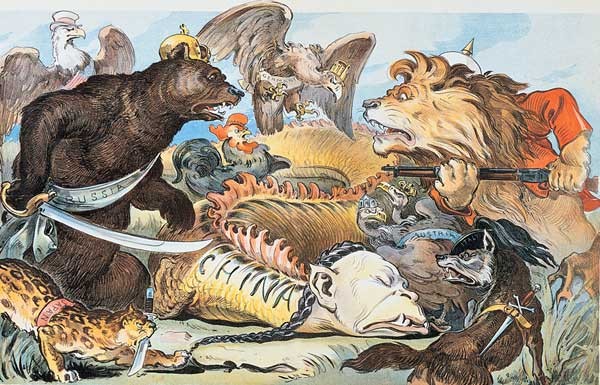
Here are some books that you may find useful during your studies. Search the Bennies catalogue Accessit for more, or browse the Non-fiction collection NFS..
The period between 1750 and 1918 was a time of great political, social and economic change. The very fabric of human society and thought was shifting in profound ways. In this program we dig deep into history to examine the major shifts from Imperialism to Nationalism, Capitalism to Egalitarianism. Featuring leading academics and clear explanations, this program consolidates a huge amount of information, putting it into context with excellent examples. Focusing on the British Empire and the slow loosening of her grip on the world, we see just how our modern world was formed.
In which John Green teaches you about European Imperialism in the 19th century. European powers started to create colonial empires way back in the 16th century, but businesses really took off in the 19th century, especially in Asia and Africa. During the 1800s, European powers carved out spheres of influence in China, India, and pretty much all of Africa. While all of the major (and some minor) powers in Europe participated in this new imperialism, England was by far the most dominant, once able to claim that the "sun never set on the British Empire." Also, they went to war for the right to continue to sell opium to the people of China. Twice. John will teach you how these empires managed to leverage the advances of the Industrial Revolution to build vast, wealth-generating empires. As it turns out, improved medicine, steam engines, and better guns were crucial in the 19th century conquests. Also, the willingness to exploit and abuse the people and resources of so-called "primitive" nations was very helpful in the whole enterprise




